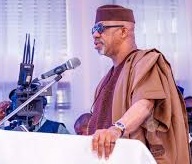Opinion:
By Segun Ogunsanya
African development is in the midst of a digital revolution which is exciting, different and disruptive, including in the critical area of education. March will see a much-anticipated event, hosted at the University of Rwanda. It is the First African Education Summit, the first, we hope, of many.
Schools and colleges comprise just one sector in which the telecommunications business is leading the way in unlocking the continent’s potential, which has been stifled for years by infrastructure that has been allowed to decay or was never there in the first place.
Advances in digital communications, such as the roll-out of 4G networks, are helping Africans to leapfrog intermediate stages of development and seize the advantages of the latest technology. In the words of Inside Telecom magazine: “Telecommunications in Africa are already playing a fundamental role in African society. This sector has created a closed circuit of economic growth and innovation.”
The continent abounds with challenges and opportunities and telecoms companies, such as Airtel Africa Plc listed here in London, are central to meeting them. Let’s look at some examples.
Through their phones, small farmers can find out how much they should be charging for their crops, and with the sub Saharan post pandemic out-of-school rate at 31%, digital learning has a huge role to play.
Financial exclusion has been a major, long-standing issue in Africa, both for businesses and individuals. Moreover, it’s a problem which impacts gender equality, with women disproportionately excluded from the financial system. Our industry’s money services are linking millions of people them to the essential financial services they need to realise their potential and aspirations.
Then there is the digital divide. In April 2022, the Carnegie Endowment estimated that just 33 per cent of Africa’s population was using the internet. Building on existing customer bases, the industry is helping to increase this figure, allowing more and more Africans to benefit from the capacity of digital technology, as the Endowment put it, “to deliver goods and services in healthcare, education, finance, commerce, governance, and agriculture”.
An efficient, robust and expanding communications infrastructure is critical to bringing businesses and customers together, to their mutual benefit. And telecoms companies are enabling this – whilst also ensuring that the environmental impact of business is minimised (in alignment with our commitment to achieve net zero greenhouse gas emissions ahead of the 2050 deadline in the Paris Agreement).
*Mr. Segun Ogunsanya is the Chief Executive Officer, Airtel Africa Plc.

 Startrend International Magazine For Your Latest News And Entertainment Gists
Startrend International Magazine For Your Latest News And Entertainment Gists





